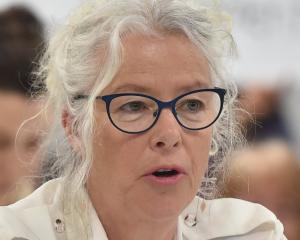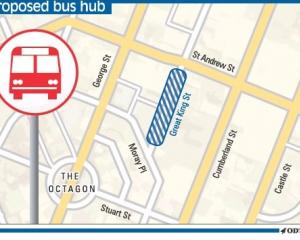Ideas discussed in Wellington might work in large urban centres but could threaten the commercial viability of services in regions with smaller passenger transport markets, Mr Fraser said last week.
"The Transport Minister says he wants commercialisation but from what we see, the idea being discussed will have the opposite effect of the objectives, here," he said.
"It will have a negative effect on commercial activities. In fact, in a region the size of Otago, there may be no commercial activity on some routes at all."
Transport Minister Steven Joyce wants more councils to increase commercialisation in public transport, where possible, so that public subsidies are only offered on routes that are not profitable.
Transport Ministry officials had asked councils to comment on a new contracting model that would divide transport networks into units, with each route operated independently on a full timetable, seven days a week, Mr Fraser said.
The ministry last week would not release the latest memo to the Otago Daily Times.
Mr Fraser said the model it discussed would turn bus networks into a series of potentially marketable units, with the expectation that the commerciality of each unit could be grown until it could be run without a subsidy.
That might work in Auckland and Wellington, where many units would make up the market, but it might not work in Otago, where the relatively small Dunedin and Wakatipu markets would each be counted as a single unit, he said.
The approach would mean companies would have to run routes even at times when there was no commercial demand for them, which might mean fewer routes offered without subsidy.
In Dunedin, that might affect weekday commercial routes offered between Normanby and St Clair, and from the city to Balaclava.
Mr McRae said the council believed an integrated network of commercial and subsidised contracted services was still the best way to ensure a constant quality of customer service on the region.
"In such small markets in Dunedin and Wakatipu, it would be just too difficult to run everything commercially.
"This is a backward step," he said.
A Transport Ministry spokeswoman confirmed only one model was proposed but that its final form might change depending on the review process.
There was still no official discussion document on the review and that recent memo sought feedback on progress so far.
The review was looking at how the bus and ferry sector could respond to the "challenges of a constrained financial environment" and the opportunities presented by new initiatives.
It would recognise the value of taking "a more commercial approach" to the delivery of services that will grow public transport, but with less reliance on public transport subsidies, she said.
Connectabus has the council's public transport contract in Queenstown, while Dunedin Passenger Transport and Citibus have the Dunedin contracts.







